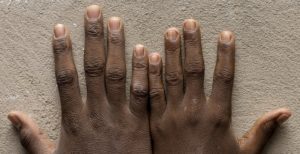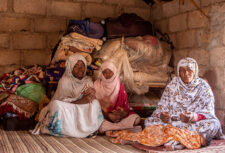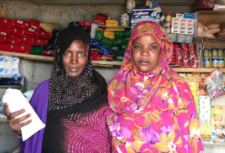Disclaimer: This article is more than 8 years old, and may not include the most up-to-date information or statistics. Please verify information with more recent sources as needed, and if you have any questions contact our Press Office.
10 July 2015
Mauritanian Justice System fails a victim of slavery yet again whilst slave-owner walks free.
By Jakub Sobik, Press and Digital Media Officer

We have just received news of a verdict in one of our slavery cases in Mauritania – a 10-year-old boy called Issa who we’d been supporting through our UN-funded project.
The Criminal Court reclassified the slavery charge as ‘obtaining the unpaid services of a child’ which carries much smaller sentences. Slavery crimes are meant to carry sentences of 5-10 years in prison.
So the slave-owner was given a 3-month sentence, which he already served through the time he’d been in detention, and was consequently released.
Neither the child, the lawyer nor the guardian of the child were even informed that the ruling was due to take place so they weren’t present in court.
As our Mauritanian partners SOS Esclaves noted, “justice has again been manipulated to disguise slavery crimes, and the courts ultimately continue to protect slave-owners and deny the legitimate rights of the victims.”
This is all very typical and I should be used to it by now but it still never fails to amaze me how outrageously unfair the treatment of people in slavery get compared to the perpetrators. Just to be clear, we are talking about people who literally own other people from the moment they are born and have complete control over their lives, confining them to lifetimes of misery, exploitation and abuse.
This all stands in stark contrast to the rhetoric of ‘prioritising an end to slavery’ that the Mauritanian government keeps spinning in international circles, and unfortunately to some extent it succeeds.
The reality cannot be more different to that rhetoric. In over thirty slavery cases that we currently have in courts none is really progressing – if anything it’s the opposite – whilst anti-slavery campaigners continue to sit in prison for denouncing slavery traditions that prevent people from owning the land they farm.
Whenever people who escape slavery want justice, they hit the wall.
Follow Jakub on twitter: @notravic





